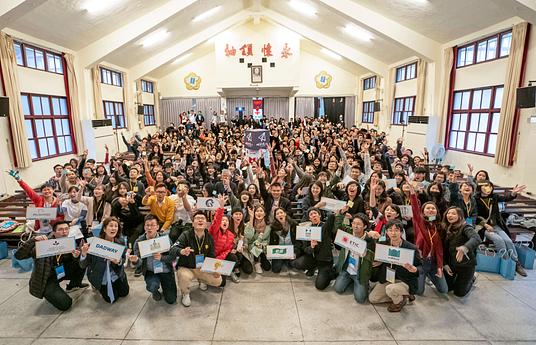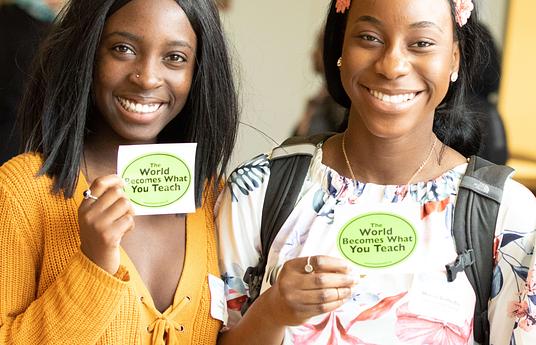Severe, widespread childhood adversity (i.e. suffering from poverty, malnutrition and abuse) along with an education system ill-equipped to respond to a constantly changing environment impedes over 100 million Indian youth from thriving in school, at work and beyond.
Children who have experienced adversity are more likely to exhibit disciplinary problems, be more absent from school, display deficits in cognitive function, have lower self-esteem and develop poorer relationships. They do not develop age-appropriate behaviours to solve problems critically, handle relationships sensitively or manage conflict tactfully. This not only critically impairs their mental health, but also significantly impacts their future prospects and has second order economic impacts like increased unemployment and reduced productivity.
Teachers in the current system are not prepared to deliver the education necessary to respond to the impacts of adversity. Mainstream education is focused on numeracy and literacy outcomes and expects teachers to ensure high test scores, however they often have “hierarchical and authoritarian mind-set(s) antithetical to 21st century learning”. Children displaying cognitive or behavioural challenges are quickly labelled as ‘non-cooperative’ and ‘slow learners’ by the education system, resulting in young people who aren’t equipped to thrive.
Dream a Dream’s empathy-based pedagogy, experiential learning, and mentoring ameliorates the effects of adversity by providing life skills, defined as positive and adaptive behaviours to deal with the challenges of daily life. These skills, which include problem solving, taking initiative, managing conflict, and interacting well with others, facilitate deeper learning, health andeconomic development.
In order to systemically introduce life skills into the education system, Dream a Dream developed the Teacher Development Programme (TDP), which uses our ‘arc of transformation’ methodology to unlock empathy and creativity, allowing teachers to understand adversity and its effects, and recognize their own biases and nurture life skills amongst their students. Teachers are the most influential players after parents and can impact many children at once, making them powerful levers affecting systemic change.
Our TDP approach is robust because it has evolved from direct implementation to systemic change. We run direct programs for children and teachers in Bangalore, which act as innovation labs for our teacher training modules. This helps us incorporate feedback in our large-scale programs delivered via governments and partners. One key insight from our programs, which led to the TDP, is that an empathetic adult actively engages students in learning, improving cognitive, social, and emotional development. Our program is unique as it develops educators’ own life skills; which is more indicative of students’ long-term success than educators’ impact on test scores.”
The TDP develops teachers’ social-emotional learning and life skills and helps them build attitudes and tools to facilitate a classroom environment where students from adversity can thrive. The TDP is delivered through a series of 4 Life Skills Facilitation (LSF) workshops spread over 6-8 months, with a focus on transformative experiences and experiential learning.
In each module the participant progresses through stages of:
• Exploring and expressing your own creative potential
• Understanding adversity and engaging young people with empathy
• Understanding of how young people learn and developing facilitation skills
• Celebrating your role in a young person’s life
Impact:
• To date, our TDP has trained 35,000 educators impacting 875,000 young people
• 90% of teachers said the TDP helped them gain a greater understanding of their role as a teacher.
• We have a retention rate of 78.7% across the workshops.
• TDP received a Net Promoter Score of 65 (60 Decibels, 2019), which is well above both the Lean Data Global (42) and India (34) averages for all companies, as well as specifically in the global education sector (42).
• 94% of participants post-completion of the TDP experienced a quality of life improvement (60 Decibels, 2019)
• The Life Skills Assessment Scale study on the TDP’s impact on students found that 66% showed a significant improvement in life skills score after their teacher participated in our programme.
Recognition:
The program was one of seven global innovations profiled as a case study in a book titled, ‘Preparing Teachers to Educate Whole Students: An International Comparative Study’ published by Harvard in 2018.
Replicability:
• The TDP approach has been and is being used to create context specific training for our 6 state government partners in India to equip educators to facilitate the well-being of the child, with a potential to train 200,000 teachers and impact 4 million children
• Our model has been replicated in Kenyan public schools by Aga Khan Foundation to integrate concepts of ‘respect of diversity’ and ‘pluralism’ in teachers. We have worked with 217 educators as part of the initial pilot
COVID-19 Response:
As a result of the pandemic the Life Skills Facilitation (LSF) workshops could not be conducted as before, in a high contact experiential set up. We took a pause to really understand the impact of the lockdowns and the pandemic on teachers.
Teachers are under immense pressure not only to teach online (with little or no training) but also ensure that students are learning, to the satisfaction of the parents. In this context, asking the right question helped. Instead of "How do we take TDP online?" to "What do teachers need right now?"
This led to the creation of LSF-X, a blended learning module, developed to be conducted over 5 days with a 20-hour curriculum. Teachers are taken through 4 stages as part of this module.
• First, teachers undergo an activity to enable self-reflection and acknowledgement of the myriad of thoughts and feelings and encouraging care and compassion for the self.
• Second, the teachers are chaperoned to view the pandemic through the lens of a child and shine light upon the web of thoughts, feelings and emotions going through every unique child’s brain, which often are not clearly stated.
• Third, after gaining this new perspective, the teachers then explore the role of a teacher in enabling both synchronous and asynchronous learning and handing over the reins of learning to the child.
• Lastly, the workshop ends with some of the teachers getting an opportunity to put into practice their knowledge and perspective in demo sessions.
So far, we have trained over 1,100 teachers using our blended learning module.
Feedback & Learning from LSF-X:
1. Choice of self-learning activities have been well received wherein 72-80% of participants have rated each of the self-learning activity as 'very useful'
2. Most useful self-learning activity was “Technology Increasing Possibilities’’ because it was important to explore, understand and learn the possibilities and how to effectively leverage technology
3. The shift in perspective for teachers that engagement, learning, and bonding is possible with the use of technology - this has instilled confidence in them



